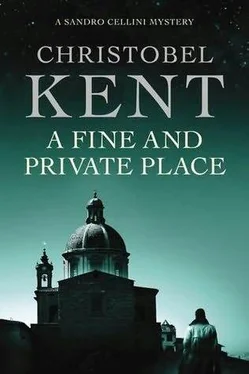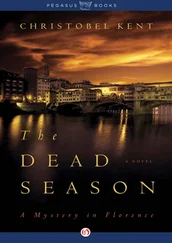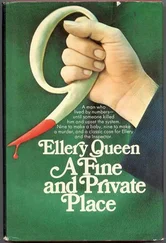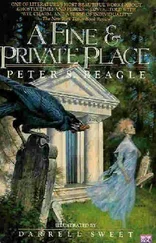Christobel Kent - A fine and private place
Здесь есть возможность читать онлайн «Christobel Kent - A fine and private place» весь текст электронной книги совершенно бесплатно (целиком полную версию без сокращений). В некоторых случаях можно слушать аудио, скачать через торрент в формате fb2 и присутствует краткое содержание. Год выпуска: 2011, ISBN: 2011, Издательство: Macmillan, Жанр: Криминальный детектив, на английском языке. Описание произведения, (предисловие) а так же отзывы посетителей доступны на портале библиотеки ЛибКат.
- Название:A fine and private place
- Автор:
- Издательство:Macmillan
- Жанр:
- Год:2011
- ISBN:9781429970808
- Рейтинг книги:4 / 5. Голосов: 1
-
Избранное:Добавить в избранное
- Отзывы:
-
Ваша оценка:
- 80
- 1
- 2
- 3
- 4
- 5
A fine and private place: краткое содержание, описание и аннотация
Предлагаем к чтению аннотацию, описание, краткое содержание или предисловие (зависит от того, что написал сам автор книги «A fine and private place»). Если вы не нашли необходимую информацию о книге — напишите в комментариях, мы постараемся отыскать её.
A fine and private place — читать онлайн бесплатно полную книгу (весь текст) целиком
Ниже представлен текст книги, разбитый по страницам. Система сохранения места последней прочитанной страницы, позволяет с удобством читать онлайн бесплатно книгу «A fine and private place», без необходимости каждый раз заново искать на чём Вы остановились. Поставьте закладку, и сможете в любой момент перейти на страницу, на которой закончили чтение.
Интервал:
Закладка:
Cate liked to know what she was walking into, so she stayed still on the crisp frosted grass, thinking. From the other side of the hill, from the little huddle of farm buildings where the others lived, the dogs bayed, the sound bouncing across the slopes. That first sight of Orfeo from the crest of the hill had been different somehow this morning. In her mind’s eye Cate checked off the detail of what she’d registered: trees, the dark, crenellated silhouette, the windows too mean and narrow for the façade, and the great gate into the courtyard standing open. Was that the cause of the commotion?
Still out of view of the kitchen door, Cate backed away, retracing her steps quietly to the small gate that would lead her back outside the walls. They were kind enough to her in there, but she was an outsider still. She needed to be prepared. She looked at her watch; it was barely eight o’clock and she was still early for work. Standing there another minute, she looked back where she’d come from, took in the trees, her motorino , Mauro’s pick-up and Ginevra’s Punto, the granary, the flagpole. The flag had been lowered; she’d never seen it like that before: that was one thing, certainly, even if she couldn’t see the significance of it. And she registered that the castle’s big 4x4 was nowhere to be seen. The Monster, they called it, Il Mostro .
Well , thought Cate, puzzled, nothing much then . An open gate; Il Mostro out on some jaunt. Had the Dottoressa been going somewhere last night, after dinner, in the car she seemed to treat as her personal property? Or this morning, even? But it was too early for her to be up and about, and anyway Cate glimpsed something now, in the gap in the trees a hundred metres away where the main drive led to the great gate.
A low blue shape. A police car.
And she ran across the frosty grass to the door, bursting into the kitchen as though she’d just arrived, and they all fell silent.
Chapter Three
As Sandro drove along the Via Senese in the grey dawn light, keeping the pink Vespa in his sights, he was on autopilot. After three days he could have done it blindfold: Sandro had always had a knack for navigation. If not for negotiation.
Last night he and Luisa had talked about the job, which had surprised Sandro. Delighted him, to start with.
She had already been home when he walked in, at 7.30.
He’d followed the girl to school, where she had remained all day; he’d followed her home again. He’d followed her to a bar in Galluzzo where she’d had hot chocolate with three girlfriends, then she’d gone back to the house.
Luisa had been cooking polpettone , and the mingling smells of veal and pork and herbs and wine issuing from the oven had lifted his spirits higher than they’d been for weeks. He had put his arms around her gratefully at the stove, and she’d turned and pecked him quickly on the cheek before returning to her pans.
Sandro had sat at the table, and poured himself a glass of the Morellino di Scansano he’d picked up from the wine shop in Via dei Serragli on the way home, as a celebratory gesture; a job was a job. The owner, a tall, husky blonde he occasionally wondered about — her voicetoo deep, her Adam’s apple too prominent — had recommended it; she, or he, had excellent taste.
Luisa had opened the window to pull the shutters to, and he’d seen her shiver in the icy air. Something about the chemo had returned her to the menopause, and she was still prone to tearing off cardigans in a sweat.
‘You’ll catch your death,’ he’d said, in exasperation.
‘I’m all right,’ she’d said impatiently, then seemed to relent. She’d pulled on a sweater that was draped across the back of a chair; Sandro didn’t remember having seen it before. Cinnamon-coloured, fine merino. Expensive looking. If Luisa had felt his eyes on her, she hadn’t acknowledged it.
‘Nice sweater,’ he’d said mildly.
‘Isn’t it?’ she’d said, offhand. ‘Old stock, hardly cost anything.’
He should have been glad she was taking pride in her appearance. ‘You look beautiful,’ Sandro had said awkwardly. ‘My beautiful wife. Come and have a glass with me.’
‘In a minute,’ she’d said, her back to him again and stirring something in a pan.
‘What are you making now?’ he’d asked.
‘Just some ragu. For the freezer. Thought I might as well, while I was at it. Bought twice the quantities at the market.’
Something about this cooking marathon had begun to unsettle Sandro. But before he’d been able to formulate his unease Luisa had pulled off the apron and was in the chair beside him. Her skin bright against the fine brown wool of the new sweater, she’d raised the glass Sandro had poured her.
They’d talked about Carlotta, and Sandro had felt the wine and the warmth of Luisa’s attention mellow him. Lull him.
‘Sounds like a normal teenager to me,’ Luisa had said.
‘We never took drugs,’ Sandro had replied. He’d been twenty or so when he met Luisa; close enough to Carlotta’s age.
‘Things were different then,’ Luisa had said, the ghost of a smile on her lips. ‘We had no money.’
She’d taken a tiny sip of her wine; Sandro knew she’d read somewhere that more than a glass a day increased your chances of breastcancer. She’d never been a drinker, never; he’d wanted to say, there’s no reason to it, cara . Don’t look for a reason.
‘There’s that,’ he’d said. ‘True, we had no money.’ Not that we’ve got much more now. ‘But there were no drugs, either, not like there are these days.’
Luisa had given him a sharp look. ‘Not so many,’ she’d said. ‘But they were around.’
‘How would you know?’ Sandro had been taken aback. His wife shrugged, and it came to him that her shoulders were as slender now as they had been when they’d first been courting. She raised an eyebrow, gave him a sly smile.
‘When I first started work — there were girls who took — certain pills. Drugs that kept them slim. The American students brought plenty over, amphetamines, I suppose. They called them speed. Don’t you remember the jazz club behind the station?’ Her eyes dancing, with mischief, or nostalgia.
And Sandro had remembered it, though he hadn’t thought about the place in thirty years; not that he’d ever been inside it when it was open. It had been closed down in the late sixties, boarded up and derelict until it reopened as a discount shoe store a couple of decades later. The Gatto Nero .
‘Did you ever go there?’ he’d asked her curiously. ‘To the Gatto? ’ Thirty years, and still there were things he didn’t know about Luisa.
‘Once or twice. The photographer took me there.’
The photographer had predated Sandro; he’d been twenty years older than Luisa and a friend, not a boyfriend. Sandro had been bitterly jealous of the man all the same; it had only occurred to him when he was in his fifties himself that the photographer, now long dead, had almost certainly been gay. Luisa had adored the man; that was all Sandro knew.
It was an age since they’d talked like this. Their marital speciality had been peace and quiet. And not since long before the cancer had they gone over old, old, times. Sandro had known he should go with the flow, enjoy it, but he could not, quite. What did it mean?
‘An only child,’ Luisa had said, shaking her head. ‘They’re all only children these days. A recipe for disaster.’
‘Don’t know about that,’ Sandro had said ruminatively. He hadn’t told her how the child had been conceived; the precious child. Would they have had a child of their own, he and Luisa, if they’d ever overcome their shame and consulted the experts? They’d never know.
Читать дальшеИнтервал:
Закладка:
Похожие книги на «A fine and private place»
Представляем Вашему вниманию похожие книги на «A fine and private place» списком для выбора. Мы отобрали схожую по названию и смыслу литературу в надежде предоставить читателям больше вариантов отыскать новые, интересные, ещё непрочитанные произведения.
Обсуждение, отзывы о книге «A fine and private place» и просто собственные мнения читателей. Оставьте ваши комментарии, напишите, что Вы думаете о произведении, его смысле или главных героях. Укажите что конкретно понравилось, а что нет, и почему Вы так считаете.












